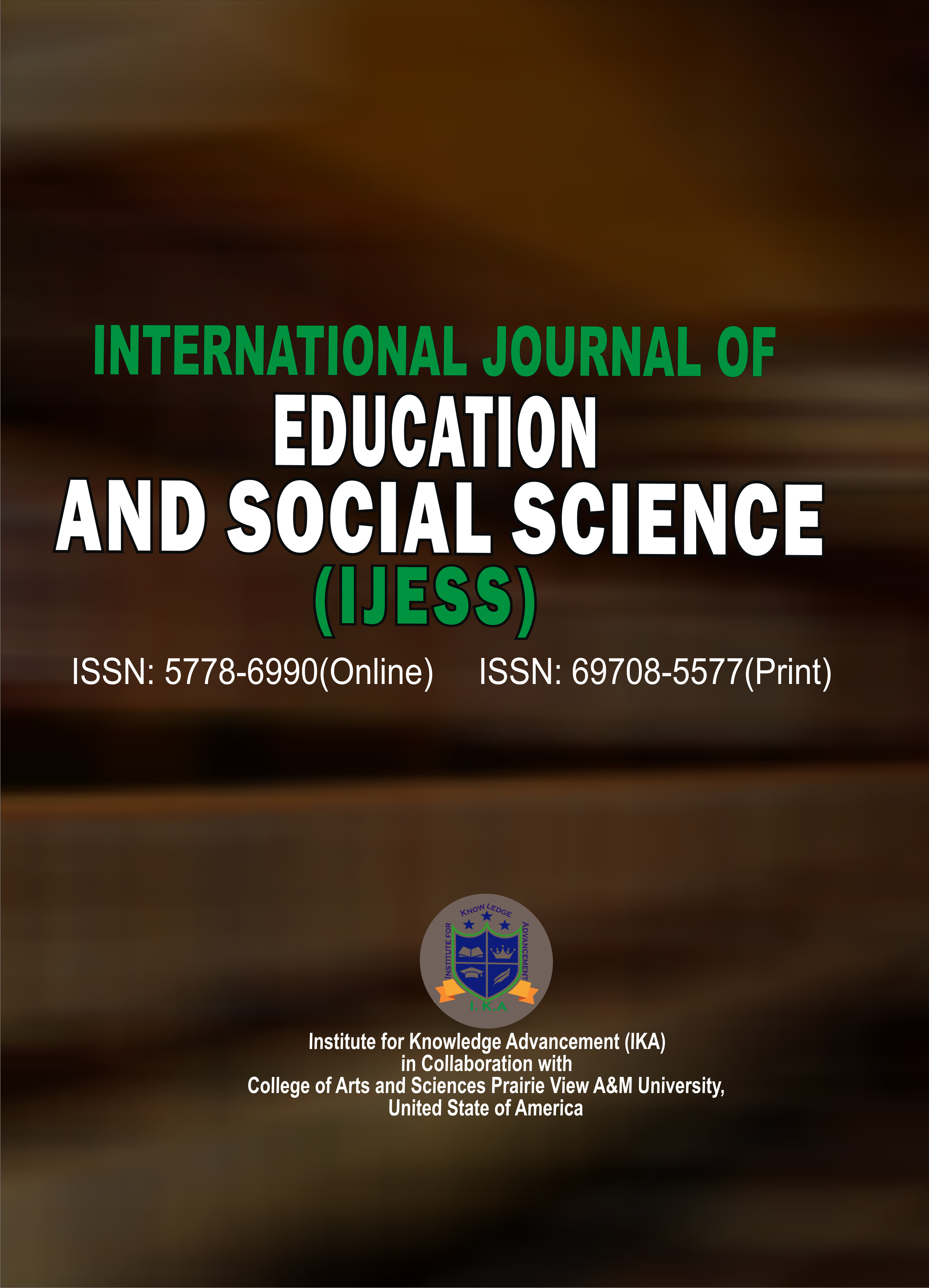INTERNATIONAL JOURNAL OF EDUCATION AND SOCIAL SCIENCE (IJESS)
Demographic and Personality Variables as Predictors of Principals’ Performance in Communication in the Management of Secondary Schools in South-South, Nigeria
E-ISSN: 5778-6990
P-ISSN: 6790-5577
DOI: https://iigdpublishers.com/article/253
The study examined the relationship between demographic and personality variables and principals’ performance in communication in the management of secondary schools in south-south, Nigeria. The study adopted the correlational survey design. Two research questions guided the study, while one null hypothesis was tested at 0.05 level of probability. The population of the study comprised of 1,356 principals and 27, 340 teachers of public secondary schools. A sample of 310 principals of government owned state secondary schools obtained using Taro Yamen’s formula was used for the study, while 1,860 teachers rated their principals. Proportionate stratified random sampling was used to select the number of principals and teachers in the 18 Senatorial Zones in the six states of South-South for fair representation. The Principals’ Communication Performance Scale (PCPS) was the instrument for data collection. This instrument was face validated by three experts and their overall internal consistency reliability co-efficient index obtained through Cronbach alpha method was 0.72. The data collected were analyzed using means, standard deviations and Pearson Product Moment Correlation Co-efficient for the research questions, while multiple regressions and associated t-test was used to test the null hypothesis. The findings revealed that principals’ performance was high in communication. Leadership styles and location had substantial correlation coefficient with principals’ performance in communication. Demographic and personality factors had joint significant relationship (p<0.05) with principals performance in communication. These variables predicted 25%, of the variance in communication. Leadership style and location predicted the performance of principals in communication. Based on these findings, it was recommended that in the appointment of principals, leadership behavior and school location should be considered since these variables had significant and substantial relationship with principal’s performance in communication. Besides, training and re-training programs should be given to principals with a view to helping them adopt more open leadership styles characterized by effective communication.
Ominini Brother Asako Walson Ph.D & Goodhope Chinenye Igwe Ph.D
Aguh, E.C (2003). Principals’ personal characteristics and administration of secondary schools in Rivers State. Unpublished Master’s thesis, University of Port-Harcourt.
Akiri, A.A, & Ugborugbo, N.M. (2008). An examination of gender’s influence on teachers’ productivity in secondary schools. Journal of Social Science. 17(3), 185-191.
Akpan, F.F. (2007). Administration of community relations and principal’s effectiveness in Cross Rivers State, Nigeria. Unpublished Ph.D thesis, University of Calabar.
Anyanwu, J. (2009). Gender differences in marital dysfunction, occupational maladjustment and performance among clerical workers. Journal of the Nigerian Academy of Education, 5(1), 32-46.
Arlestig, H. (2008). Structural prerequisites for principals’ and teachers communication about teaching and learning issues. Improving schools, 11(3), 191-205.
